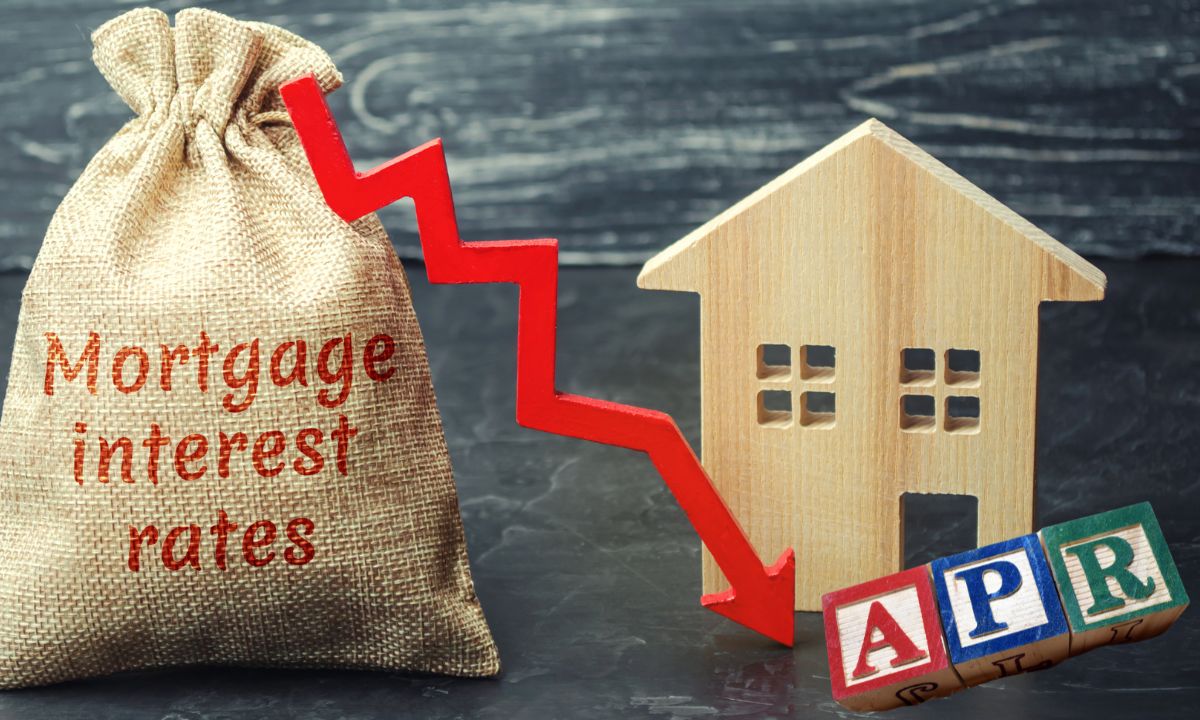 If you’re gearing up to dive into the world of real estate, there are a few key terms you’ll want to wrap your head around before taking the plunge. Today, we’re demystifying APR and interest rate, two crucial concepts that can impact your home-buying journey. Don’t worry, I’ll break it down in simple terms so you can confidently navigate the process like a pro.
If you’re gearing up to dive into the world of real estate, there are a few key terms you’ll want to wrap your head around before taking the plunge. Today, we’re demystifying APR and interest rate, two crucial concepts that can impact your home-buying journey. Don’t worry, I’ll break it down in simple terms so you can confidently navigate the process like a pro.
Interest Rate:
Let’s start with the basics. The interest rate is the percentage charged by a lender for borrowing money to buy your home. It’s essentially the cost of borrowing the principal amount. When you’re comparing loan offers, you’ll often see this prominently displayed. A lower interest rate generally means lower monthly payments, which can be appealing, especially over the long term.
Annual Percentage Rate (APR):
Now, let’s add another layer of complexity with APR. APR includes not only the interest rate but also additional fees and costs associated with securing your mortgage. This could include things like origination fees, points, closing costs, and mortgage insurance premiums. Essentially, APR gives you a more comprehensive picture of the total cost of borrowing over the life of the loan.
So, what’s the big difference when it comes to buying a home?
Interest Rate is like looking at the sticker price of a car. It’s the upfront cost you’ll pay for borrowing money, expressed as a percentage.
APR, on the other hand, is more like the total cost of ownership of that car, including taxes, registration fees, and maintenance costs. It gives you a clearer picture of the overall cost of borrowing by factoring in those additional expenses.
Why does this matter in the context of buying a home?
Well, let’s say you’re comparing two mortgage offers:
· Option A has a lower interest rate of 3.5%.
· Option B has a slightly higher interest rate of 3.75%, but it includes points that lower the rate and have lower closing costs overall.
At first glance, Option A might seem like the better deal because of its lower interest rate. However, once you factor in all the additional costs included in the APR, Option B might end up being more affordable in the long run.
Understanding the difference between APR and interest rate empowers you to make informed decisions when comparing mortgage offers. It allows you to see beyond the headline numbers and consider the full financial picture.
So, as you prepare for your home-buying journey, remember to look beyond the interest rate and pay close attention to the APR. It could save you thousands of dollars over the life of your loan and ensure you’re making the best financial decision for your future.
 If you plan on retiring soon, you are probably looking at a few options that can get you over the hump. You are probably excited to start a new phase of life. With a record number of people closing in on their retirement age, many are starting to assess their resources to make sure they have enough money to last them for the rest of their lives. If you already own a home, you might be able to tap into your home equity to help you fuel your retirement.
If you plan on retiring soon, you are probably looking at a few options that can get you over the hump. You are probably excited to start a new phase of life. With a record number of people closing in on their retirement age, many are starting to assess their resources to make sure they have enough money to last them for the rest of their lives. If you already own a home, you might be able to tap into your home equity to help you fuel your retirement. When considering the journey of purchasing a new home, one of the fundamental decisions you’ll encounter revolves around determining the appropriate amount of money to allocate for your down payment. It’s a decision-making process that involves weighing the benefits of opting for a larger down payment against the potential advantages of utilizing some of those funds to purchase “discount points,” thereby reducing your interest rate. Each option carries its own set of merits and demerits, and the optimal choice for you hinges on a careful examination of your unique financial circumstances and objectives.
When considering the journey of purchasing a new home, one of the fundamental decisions you’ll encounter revolves around determining the appropriate amount of money to allocate for your down payment. It’s a decision-making process that involves weighing the benefits of opting for a larger down payment against the potential advantages of utilizing some of those funds to purchase “discount points,” thereby reducing your interest rate. Each option carries its own set of merits and demerits, and the optimal choice for you hinges on a careful examination of your unique financial circumstances and objectives. The long-awaited week has come and within expectations, the Federal Reserve has decided to reduce interest rates for central banks by 50 basis points. This is the bigger of the two options for a rate cut, with the lesser being 25 basis points. The impact of this cannot be understated as this gives an official nod that the economy is in a good spot and inflation is under control, according to the Federal Reserve’s outlook on the data. The only black mark on the week of releases is the U.S. Leading Economic Indicators showing the economy has been in a slower trend for the past 6 months. The Federal Reserve, despite the rate cut, has continued to remain hard in its stance about not cutting rates too quickly. This will likely depend on future data.
The long-awaited week has come and within expectations, the Federal Reserve has decided to reduce interest rates for central banks by 50 basis points. This is the bigger of the two options for a rate cut, with the lesser being 25 basis points. The impact of this cannot be understated as this gives an official nod that the economy is in a good spot and inflation is under control, according to the Federal Reserve’s outlook on the data. The only black mark on the week of releases is the U.S. Leading Economic Indicators showing the economy has been in a slower trend for the past 6 months. The Federal Reserve, despite the rate cut, has continued to remain hard in its stance about not cutting rates too quickly. This will likely depend on future data. Living with allergies can be tough, especially when your home, a place meant for comfort, becomes a source of irritation. Allergens like dust mites, pollen, pet dander, and mold can linger in your living spaces, worsening symptoms for those with sensitivities. Fortunately, there are effective strategies to reduce allergens and create a healthier home environment. Here are some tips to help you get started:
Living with allergies can be tough, especially when your home, a place meant for comfort, becomes a source of irritation. Allergens like dust mites, pollen, pet dander, and mold can linger in your living spaces, worsening symptoms for those with sensitivities. Fortunately, there are effective strategies to reduce allergens and create a healthier home environment. Here are some tips to help you get started: The probate process is often a key concern for those dealing with real estate after the death of a loved one. Whether you’re buying or selling a probate property, understanding the steps involved can help you navigate the transaction more smoothly. Here’s a simplified guide to the probate process and some strategies for avoiding it.
The probate process is often a key concern for those dealing with real estate after the death of a loved one. Whether you’re buying or selling a probate property, understanding the steps involved can help you navigate the transaction more smoothly. Here’s a simplified guide to the probate process and some strategies for avoiding it.